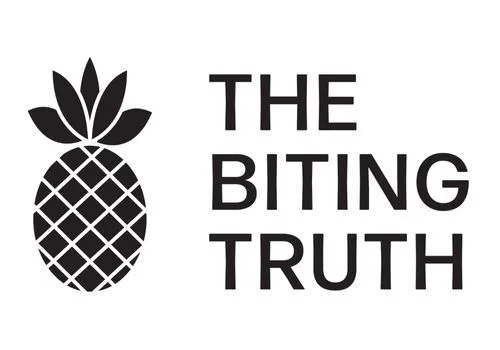
Menopause is something all women will eventually experience. Symptoms often include weight gain, fatigue, hot flushes, mood swings, poor concentration, low libido and joint pain. Whilst these symptoms may sound daunting, research shows that healthy eating, combined with regular exercise and weight management, are some of the best ways of controlling these symptoms.
What is Menopause?
Menopause is not a single event – it’s actually a transition that can start in your 30s and 40s and last into your 50s or even 60s.
Menopause occurs when your body is no longer able to produce enough of the hormone estrogen, which is responsible for regulating your menstrual cycle. The average age for menopause is 51, but the ‘normal’ range is anywhere between 46 and 54. It is your ovaries that actually trigger menopause because their function gradually decreases and eventually stops (i.e. until there are no eggs left). Your ovaries are responsible for producing most of the hormone estrogen in your body, as well as the other two important sex hormones: progesterone and testosterone, hence why all of these hormones begin to reduce during menopause. Estrogen and progesterone regulate your periods and testosterone fuels your sex drive. A reduced production of testosterone can therefore cause a dip in your sex drive.
The gradual loss of estrogen during menopause is believed to be responsible for many of the associated symptoms including irregular periods, hot flushes, disrupted sleep, night sweats, headaches, dryness, mood swings and weight gain.
Menopause & Weight Gain
Losing weight is never easy, but once you approach 40 it seems to get harder – especially around the belly.
Beginning from around the age of 35, most women start to lose muscle and gain more fat. While initially this may not be hugely noticeable, after five years, these changes can start to become more obvious. This mostly comes down to biology – i.e. a reduction in the production of hormones, a slowing metabolism, daily stress and decreasing estrogen levels associated with menopause.
A reduction in estrogen tends to increase appetite and also affects the way fat is distributed around the body. In addition to this, the gradual drop in testosterone levels during menopause results in the loss of muscle mass (remember that muscle cells burn more calories than fat cells do). This unfortunately, lowers your metabolism, which means your body burns calories more slowly, often resulting in weight gain.
In addition to hormonal changes associated with menopause, there are other factors that can play a role in weight gain. Changes in insulin sensitivity (the hormone that stabilizes blood sugar levels and metabolism) can make it easier to gain weight, a reduction in exercise, genetic factors and stress are all factors that can contribute to weight gain during menopause.
Although it might be harder to lose weight once you’ve hit menopause – it’s certainly not impossible!
Diets Don’t Work
While it might seem tempting to go on the latest fad diet to try and lose weight, this usually results in more harm than good. While a “diet” might lead to quick weight loss in the first few weeks – this is often muscle and water loss (not fat). In the long run you are likely to regain this weight and may end up slowing your metabolism down even further. In addition to this, when you’re trying to lose weight, it is essential you get nutrients from all food groups to support your health. If you don’t get adequate nutrients this can impact your hormones, energy levels and immune system.
The diet mentality can be a difficult one to break, but when you start thinking of food as a way to protect your health, boost your energy and feel generally awesome – you’ll see amazing results.
What Should Your Diet Look Like?
Once you hit menopause, the number of calories you need does decrease due to the increase in fat cells and reduction in muscle. When your body composition shifts to more fat and less muscle, your metabolism slows. This means the types of food you eat (and quantity) are hugely important.
Check out our top 6 recommendations when it comes to weight loss, boosting energy and balancing hormone levels during menopause.
- Get the right balance of macronutrients
Balancing your macronutrients at each meal will help ensure you get the right portions of nutrients on your plate. Macronutrients is used to refer to carbohydrates, protein and fat which each have an essential role in our health. To achieve a healthy balance of each when building a meal, aim for the following;
- ½ plate vegetables: Vegetables, particularly non-starchy vegetables, are a great way to increase the volume of your meals and help balance your macronutrient intake without increasing the calories. Vegetables are also incredibly nutritious and rich in vitamins, minerals and antioxidants (important micronutrients).
- ¼ plate lean protein: Protein is an essential nutrient for women going through menopause. This is because during menopause there is usually a break-down of muscle in your body.
- ¼ plate wholegrains: Whole grains are a fantastic source of energy and help to keep your digestive system functioning optimally.
- 1 tablespoon healthy fats: Healthy fats, particularly Omega 3 fatty acids have been shown to reduce some of the common symptoms of menopause caused by inflammation. Foods that are rich in Omega 3 fatty acids include fatty fish such as mackerel, salmon and anchovies and seeds such as flax seeds, chia seeds and hemp seeds.
- Enjoy nutrient-packed snacks
Snacking can sometimes make or break a healthy diet. It’s really important to have your pantry stocked with nutritious snacks, so when you’re searching for something to eat (especially in a hurry) you have plenty of healthy options on hand rather than having easy access to energy-dense, nutrient-poor snacks. Here are some of our favorite snacking combinations:
- Fresh fruit with Greek yoghurt
- Vegetable sticks with hummus
- Air popped popcorn
- Roasted chickpeas
- Boiled egg
- Cottage cheese with wholegrain crackers
- Handful of nuts
- Edamame beans
- Eat plenty of dairy (calcium-rich) foods
The fall in estrogen levels during menopause can cause a reduction in bone density, which can increase the risk of fractures and osteoporosis. This is why dairy foods (which are rich in calcium) are even more important for women during and after menopause. To best protect the health of your bones, you should try and aim to have 3-4 serves of calcium rich foods every day such as; milk, yoghurt and cheese or if you choose dairy free alternatives, ensure they are fortified with calcium.
- Boost your fibre intake
Hormone changes associated with menopause can lead to digestive issues like constipation or bloating. The best way to manage this is to choose higher fibre foods. Choose wholegrain carbohydrates like brown rice, quinoa, oats, wholegrain bread, barley, farro and enjoy plate-based foods like fruits, vegetables, nuts and seeds. Look for ‘high fibre’ on food labels as a helpful guide when shopping.
- Drink mainly water
Drinking plenty of water can help keep your skin moist and offset dryness. Drinking water also helps decrease the bloating that occurs with hormonal changes.
- Caffeine: Caffeine has been shown to aggravate some menopausal symptoms such as hot flushes. Additionally, excessive intake of caffeine has been shown to reduce the absorption of calcium, so try to maintain a moderate intake.
- Alcohol: Alcoholic beverages add excess calories to your diet and increase the risk of weight gain. Higher consumption of alcohol is strongly associated with hot flushes during menopause. The reason alcohol consumption is thought to increase hot flushes is because it has been shown to influence areas of the brain which regulate body temperature.
- Be careful with restaurant foods
Eating out is an enjoyable experience for many reasons – you don’t need to cook, someone serves you and you avoid the post-cook clean up. The downside of eating out is that many of the options available are nutrient poor and higher in refined carbohydrates, salt and unhealthy fats. It’s also more difficult to manage portion sizes.
If you enjoy eating out, we suggested making a few smart choices to help prevent unwanted weight gain during menopause.
- As mentioned above, you should aim to ensure around half of your meal is made up of vegetables. This can be difficult when eating out, so consider the following tips to boost your vegetable intake:
- Order an extra side of vegetables or salad
- Add additional vegetables to a pizza
- Choose a vegetable-based soup
- Choose a vegetable stir-fry
- Choose your carbohydrates carefully. The quality of the carbohydrates you consume will impact your energy and satiety levels. Choose wholegrain carbohydrates that will leave you feeling satisfied for example: brown rice, quinoa, wholegrain bread, sweet potato, corn or potato.
